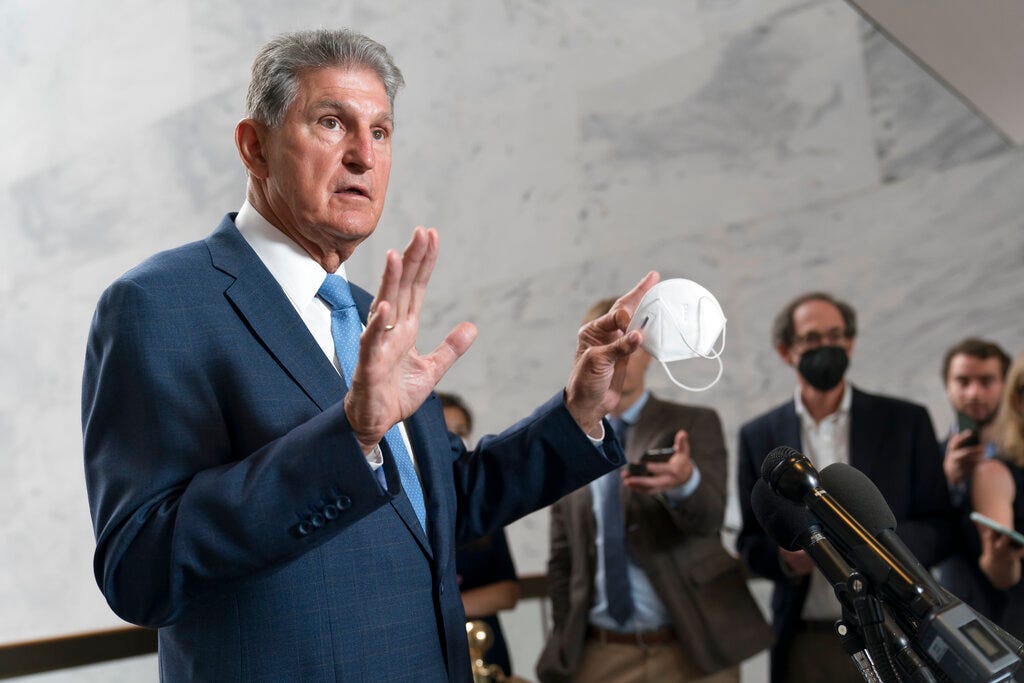- UMWA president Cecil Roberts praised Joe Manchin's role in crafting the Inflation Reduction Act.
- Roberts said the legislation would help West Virginia miners and dismissed criticism of the bill as "absolute bull."
- A group of Appalachian coal organizations said they were "shocked and disheartened" by Manchin's involvement with the bill.
The president of the United Mine Workers of America defended Democratic Sen. Joe Manchin of West Virginia against attacks that the recently-passed reconciliation climate and tax was bad for the coal industry.
Cecil Roberts — who leads the union which represents thousands of coal workers — called such criticism "absolute bull" and said the bill, known as the Inflation Reduction Act, would be beneficial to members in the state.
He proceeded to dismiss the criticism that he said has been spread by opponents of the legislation.
"Those who are attacking this legislation … overlook some pretty obvious benefits of this bill to West Virginia coal miners, like the billions in tax credits for the application of Carbon Capture and Storage technology, which would allow coal-fired power plants to extend their lives for decades," he said in a statement. "This is one of the first times Congress can actually take steps to support the coal industry, which few ever expected."
He continued: "And the $4 billion in tax credits in this bill that provides incentives for manufacturers to build plants in the coalfields will provide good jobs to thousands of coal miners who have already lost their jobs and revitalize communities across West Virginia and Appalachia. I cannot understand how any politician who actually cares about working West Virginians and the quality of their lives can trash this bill."
Roberts also remarked on a tax on coal companies that provides benefits for miners who have been afflicted with black lung disease, which he thought was a critical provision of the bill.
The statement from Roberts came as many coal industry leaders have continued to react negatively to the legislation, fearing it will be detrimental to the coal industry, which has declined across the United States in recent decades.
A group of Appalachian coal organizations — including the West Virginia Coal Association — in a recent letter stated that an excise tax included in the bill would deprive them of millions of dollars needed to stabilize energy costs and keep prices competitive.
"This legislation is so egregious, it leaves those of us that call Senator Manchin a friend, shocked and disheartened," they wrote.
And Republicans have already set their sights on Manchin's seat, as he is up for reelection in 2024 in a state that has moved dramatically away from Democrats over the past 25 years and supported former President Donald Trump in a landslide in both 2016 and 2020.
However, Manchin — a former governor who has long been adept at the unique retail politicking of West Virginia — was able to defy the Republican lean of the state in 2018 and win reelection.
The tax and climate bill — which has been passed by the House and Senate and currently awaits President Joe Biden's signature — would allow a three-year extension of subsidies for individuals to buy health insurance through the Affordable Care Act, while also providing nearly $370 billion for climate and energy programs and $300 billion to reduce the federal budget deficit.
The bill would also generate roughly $739 billion in revenue over the next decade.
